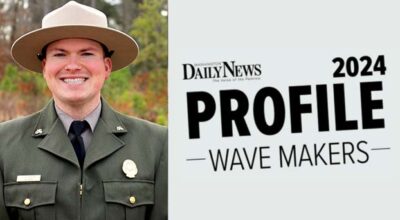County works to streamline DSS cases
Published 8:55 pm Tuesday, November 27, 2012
An effort is under way in Beaufort County to streamline the way county workers help those who apply at the Department of Social Services for different types of assistance.
The North Carolina Families Accessing Services through Technology program is being implemented first by workers in the department’s food-and-nutrition-services division. The program, officials said, will ultimately help DSS workers better track clients who receive help, avoid duplication of services, prevent fraud and save taxpayer money.
N.C. FAST is designed to improve the way the N.C. Department of Health and Human Services and county departments of social services do business.
Through the use of technology and streamlined interview processes, case workers will be able to spend less time on administrative tasks and more time helping families, according to information presented Tuesday to the Beaufort County Board of Commissioners.
N.C. FAST was one of several programs discussed with county leaders in a meeting at DSS headquarters as part of a regular review of agency activities. It is just one of the changes at the department aimed at reducing waiting time and providing better service to those who ask DSS for help, the commissioners were told.
“We’re making every effort possible to make it easier for people to access our services,” said Barbara Jones, assistant director, during a presentation to county board members.
Among the changes at the department is a “triage” program that allows clients to be seen almost immediately by any social worker instead of having to wait to be seen by a particular worker.
The agency is in the process of recruiting an employee whose job will be to look for fraud among the agency’s clients. DSS hopes to have that position filled within a week, the commissioners were told.
That employee’s job will be to “investigate possible violations of the law and bring a successful conclusion to the referral,” according to information presented to the commissioners.
“Most of the things we call fraud are not intentional,” Jones told the commissioners. “They are statements people make without understanding what is being asked.
For example, she said, a client may not understand that a piece of property left to them by a family member is considered a financial resource, so when asked about his or her resources, may not know to list that.
“We still have to pursue the recoupment,” she said. “But we don’t see a lot of intentional fraud.”
Implementation of N.C. FAST by all services provided by the department will help provide a “more robust verification process” that will help eliminate most of the fraud that does exist and, ultimately, save the taxpayers money, Sonya Toman, DSS director, told the board.





